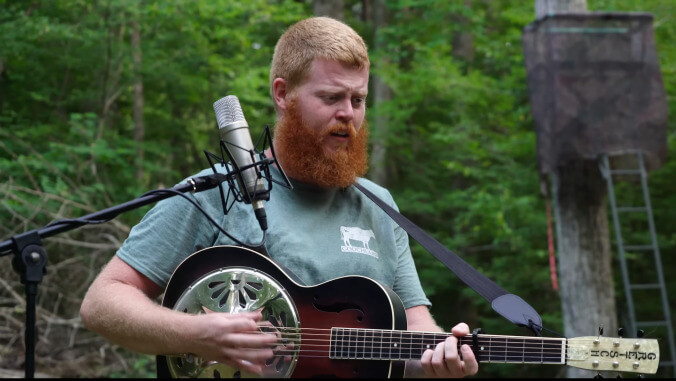"Rich Men North Of Richmond" is #1 again amid country chart domination
Oliver Anthony's outrage-bait track "Rich Men North Of Richmond" continues an interesting chart trend

Popular music has never been completely separate from politics, but the Billboard charts have rarely felt so directly tied to reactionary conservative emotion than it has this summer. Oliver Anthony’s “Rich Men North Of Richmond” just took the number one spot on the Hot 100 for the second week in a row, proving that a general sense of anger is enough to turn an unknown performer into a bonafide star.
Anthony became a conservative icon when “Rich Men North Of Richmond” went viral, though he was quick to condemn the Republicans who weighed in on the track during last week’s debate. “I. Don’t. Support. Either. Side. Politically. Not the left, not the right. Im about supporting people and restoring local communities,” the singer reiterated on X/Twitter. “Now, go breath [sic] some fresh air and relax. Please? 🙂 I’m not worth obsessing over, I promise. Go spend time with your loved ones.”
Except someone out there is definitely obsessing—a lot of someones, one would assume, given that streams for the song were up 31% this week and airplay audience impressions were up 310% despite the fact that it wasn’t even being promoted for radio (per Billboard). “Rich Men” has now outperformed country’s previous conservative outrage-bait track, “Try That In A Small Town” by Jason Aldean. Aldean also peaked at #1 amid backlash to his song, but fell off steeply the week after, whereas Anthony seems to have gained some momentum.
Country music is having an undeniable moment. This week is only the third in chart history that three songs from the genre have taken the top three spots of the Hot 100—the previous two times happened last week and the week before. Besides “Try That In A Small Town,” there’s also Morgan Wallen’s “Last Night” and Luke Combs’ cover of “Fast Car.” Neither of those songs are outwardly political in the way Anthony’s and Aldean’s are. Yet it’s interesting to note that Combs’ cover puts a working-class white man spin on the work of a Black feminist artist (a song that is if not explicitly queer, has at least been read as such in its original form).
In other words: working-class white dudes railing against The Man are having a moment… again. There’s nothing inherently wrong with that, except that there’s nothing particularly good or original about these specific outrage-bait tunes. The lyrics tend to eschew actual artistry for obvious dog whistles and winking references to conspiracy theories. (For Anthony, it’s welfare queens and Epstein island; for Aldean, it’s guns getting rounded up and the Knockout game.) Unfortunately, just as it has done in the political sphere, this crude tactic seems to have unlocked a surefire formula for topping the charts—meaning it’s likely to be a formula we see replicated more frequently in the future.